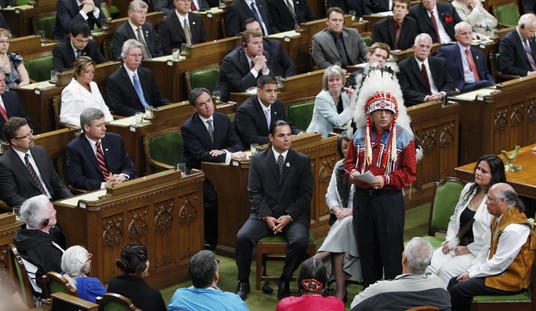“Now please go away,” says Mark Spitznagel. More:
One hundred years ago, on Dec. 23, 1913, the Federal Reserve Act was signed into law, giving the United States exactly what it didn’t need: a central bank. Americans had gone without one since the 1836 expiration of the charter of the Second Bank of the United States, which Andrew Jackson famously refused to renew. Not to be a party pooper, but as this dubious centennial is observed, we should ask ourselves: Has the Fed been friend or foe to growth and prosperity?
…
Economists Selgin, Lastrapes and White analyzed the Fed’s record and found that even focusing on the post-World War II era, it is not clear that the Fed has provided more economic stability compared with the pre-Fed regime that was characterized by the National Banking system. The authors concluded that “the need for a systematic exploration of alternatives to the established monetary system is as pressing today as it was a century ago.”In other sectors, we don’t normally defer to a committee of a dozen experts to set prices. Yet this is what the Fed does with its “open market committee” that routinely sets a target for the “federal funds rate” as well as other objectives. If we all agree that central planning and price-fixing don’t work for computers and oil, why would we expect it to bring us stability in money and banking?
The Fed’s original mission was price stability, and the dollar has lost something like 98% of it purchasing power since 1913. In the 1970s, the Fed was given a second task, to keep unemployment low — and there’s nothing funny to say about that.
Japan faces similar problems with its central bank:
Japan’s inflation accelerated to the fastest pace since 2008 last month, bringing the rate closer to policy makers’ target while threatening to erode household spending power unless employers boost wages.
Prices excluding fresh food rose 1.2 percent from a year earlier, the statistics bureau said today in Tokyo, more than a median forecast of 1.1 percent in a Bloomberg News survey of economists. A separate report showed industrial output rose 0.1 percent from October, less than forecast, in a risk for projections of an acceleration in economic growth this quarter.
Eroding wealth to force people to spend money to force businesses to inflate wages to reinflate an economic bubble is considered “success.” We’ve been trying the same thing here, with mixed results, since 2001.
Fact is, during the century before the Fed’s creation, the US dollar enjoyed a modest deflation, rewarding savings and non-speculative investment. Per capita income and our population both grew phenomenally — an explosion of wealth and creativity unparalleled in human history.
Not everything we’ve endured since is the Fed’s fault, but ending that century-long failure wouldn’t be a bad place to start repairing the damage.










Join the conversation as a VIP Member